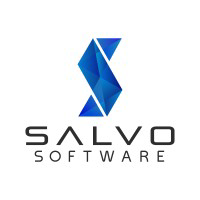We are seeking an experienced Automotive Scan Tool Architect to lead the design and development of advanced diagnostic scan tool software, with a focus on implementing an ODX/OTX runtime engine. This role requires deep technical expertise in automotive diagnostic protocols and software architecture, combined with a strategic mindset to deliver scalable and robust solutions for automotive diagnostics. The successful candidate will collaborate with cross-functional teams to architect cutting-edge scan tool solutions that meet industry standards.Responsibilities:
- Perform the design of a scalable and modular software architecture for automotive scan tools, with a specific focus on implementing an ODX (Open Diagnostic Data Exchange) and OTX (Open Test Sequence Exchange) runtime engine.
- Ensure seamless integration of diagnostic software with automotive protocols (e.g., CAN, J1850, J1708, J1939, UDS, ISO 14229, ISO 15765) and hardware platforms.
- Provide technical guidance to development teams, ensuring alignment with architectural vision, industry standards (e.g., ISO, SAE), and best practices.
- Collaborate with managers and stakeholders to gather and analyze requirements, translating them into technical specifications.
- Design and optimize software for performance, reliability, and scalability.
- Create and maintain comprehensive architectural documentation, including design specifications, system diagrams, and integration guides.
Requirements
- Bachelor’s or Master’s degree in Computer Science, Electrical Engineering, Automotive Engineering, or a related field.
- Minimum of 5+ years of experience in software architecture or development, with at least 3+ years focused on automotive diagnostic systems.
- Proven experience architecting and implementing ODX/OTX runtime engines for automotive scan tools or similar diagnostic software.
- Hands-on experience with automotive communication protocols (e.g., CAN, J1850, J1708, J1939, UDS, ISO 14229, ISO 15765).
- Deep understanding of ODX and OTX standards, XML-based data structures, and diagnostic workflows.
- Proficiency in programming languages such as Java or Kotlin.
- Knowledge of software development methodologies (e.g., Agile, DevOps) and version control systems (e.g., Git).

